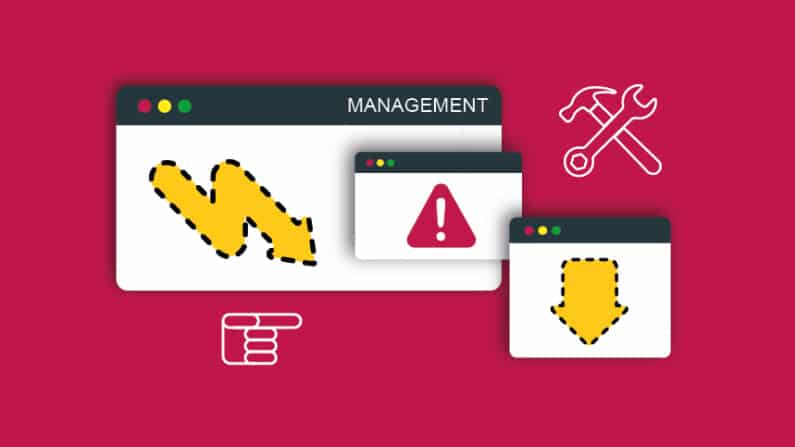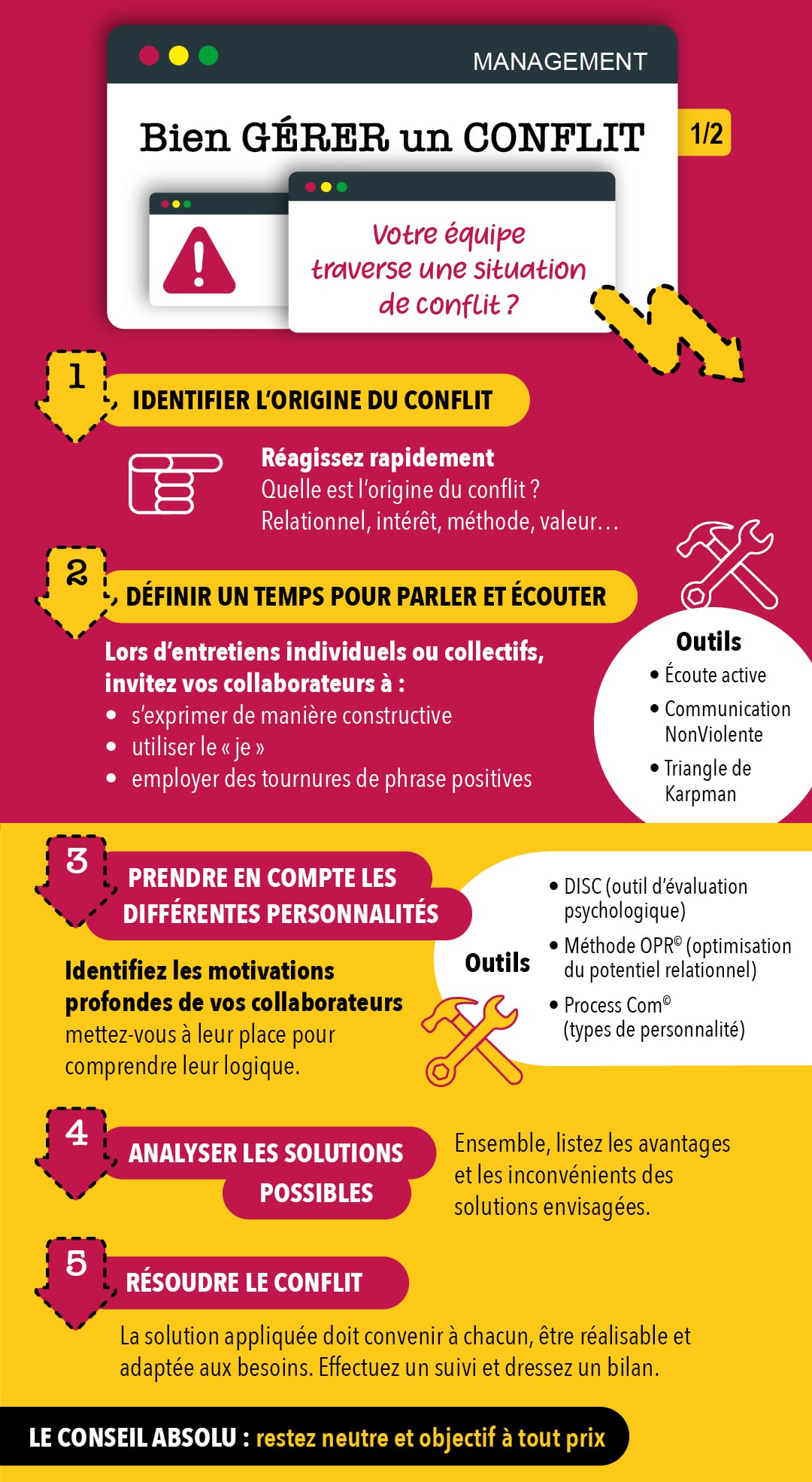Despite a charter of good conduct, the definition of shared values or a team building event, you notice avoidance, rumours and even aggression? There's no doubt that your team is in conflict!

Here are some tips for managing the crisis as calmly as possible:
- Identifying the origin of the conflict
- Setting a time to talk and listen
- Take into account the different personalities that make up your team
- Analysing possible solutions
- Resolving the conflict
1 - Identifying the source of the conflict
React quickly.
First of all, we need to determine the origin of the conflict:
- relationship problems
- conflict of interest
- disagreement on the method
- values too far apart
The right question to ask is: do the two parties have the same perception of the problem?
2 - Setting a time to talk and listen
This is a key stage in channelling emotions and gaining the necessary distance.
"Lower the tension
Talk to everyone. Together or separately, depending on whether communication has broken down or is still possible.
Invite your employees to :
- express themselves constructively
- use the "I
- use positive turns of phrase
Tools :
- Active listening
- Non-Violent Communication
- Karpman triangle
3 - Take into account the different personalities that make up your team
Identifying the underlying motivations of your employees is essential for effective conflict management. Put yourself in the other person's shoes to understand their logic.
"Everyone reacts differently to stress, which has an impact on conflict management".
Tools :
- DISC (psychological assessment tool)
- OPR© method (optimisation of relational potential)
- Process com© (personality types)
[ Read also ]
4 - Analysing possible solutions
Together, list the advantages, disadvantages and consequences of each solution. Try to project yourself into the different possible scenarios.
5 - Resolving the conflict
The solution applied must be acceptable to both parties, feasible and tailored to needs. Follow up and assess the situation.
The absolute advice:
"Remain neutral and objective at all costs
[Also read]






